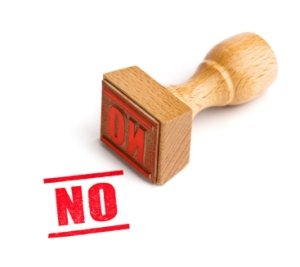 Defendants subject to a discovery stay brought a motion for clarification on discovery between non-parties, starting additional discovery on third parties and issuing litigation litigation-hold subpoenas to third parties. City of Lindsay v. Sociedad Quimica Y Minera De Chile S.A., 2012 U.S. Dist. LEXIS 87672, 1-2 (E.D. Cal. June 22, 2012).
Defendants subject to a discovery stay brought a motion for clarification on discovery between non-parties, starting additional discovery on third parties and issuing litigation litigation-hold subpoenas to third parties. City of Lindsay v. Sociedad Quimica Y Minera De Chile S.A., 2012 U.S. Dist. LEXIS 87672, 1-2 (E.D. Cal. June 22, 2012).
The temporary discovery stay pertained to the admissibility of an expert witness’s testimony. Concurrently before the Ninth Circuit was an identical issue on the admissibility of similar expert witness’s testimony. The Court found a temporary stay promoted judicial economy for the resolution of the issue before the Ninth Circuit. Moreover, the Plaintiff indicated it would “likely” dismiss the case if the witness’s testimony were inadmissible. City of Lindsay, at 2-3.
The Court held the following:
Permitting the parties to proceed with discovery and related activities is contrary to the stay’s purposes of promoting judicial efficiency and economy and of avoiding necessary fees and costs. Accordingly, neither party may proceed with any discovery or litigation proceedings related to discovery until such time as the Court lifts the stay.
City of Lindsay, at 3.
Bow Tie Thoughts
When a Judge says, “stay,” they really mean it to promote judicial economy. They do not want to see the discovery war machine grind litigation budgets into nothing. It is no surprise when a party asks to effectively lift a temporary stay that they would be told no.
However, lawyers who understand the duty to preserve live in fear of data not under their control being lost. They have an ethical duty under their preservation obligations to ensure their client’s data is at least preserved. To be blunt, a discovery stay did not stay the triggering event for when litigation was reasonably anticipated.
A lawyer concerned about third parties with possible discovery might feel very uncomfortable with sending a preservation letter with the Court using language such as “…neither party may proceed with any discovery or litigation proceedings related to discovery until such time as the Court lifts the stay.”
A lawyer could say with a straight face that sending a litigation hold letter to a third party, or a preservation letter to a third party under their control, is not conducting discovery or issuing a litigation proceeding. Arguably, they are merely alerting the third party there is 1) a lawsuit; 2) a discovery stay in place until a specific date; and 3) identify the relevant data that should be preserved. This conservative attorney has not propounded any discovery, filed a motion in Court, sent out collection experts, performed data analytics, or undertaken any review. In short, no one is spending money.
However, that could quickly change if a third party hires collection professionals and incurs preservation and processing costs. This arguably would violate the intent of the discovery stay to promote judicial economy.
Now, a Court might disagree, but sending a letter alerting a third party alerting them to a lawsuit and their possible preservation obligation should not be considered “conducting discovery.”
No really means no when it comes to a discovery stay. However, sending a preservation letter should not subject a lawyer to legal jeopardy for “violating” a discovery stay.
